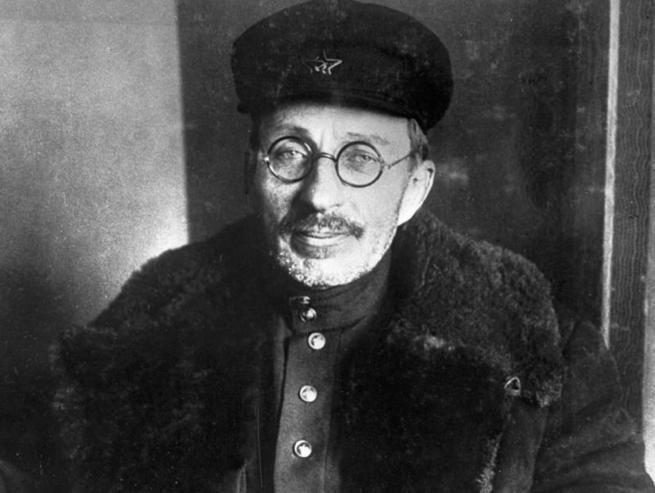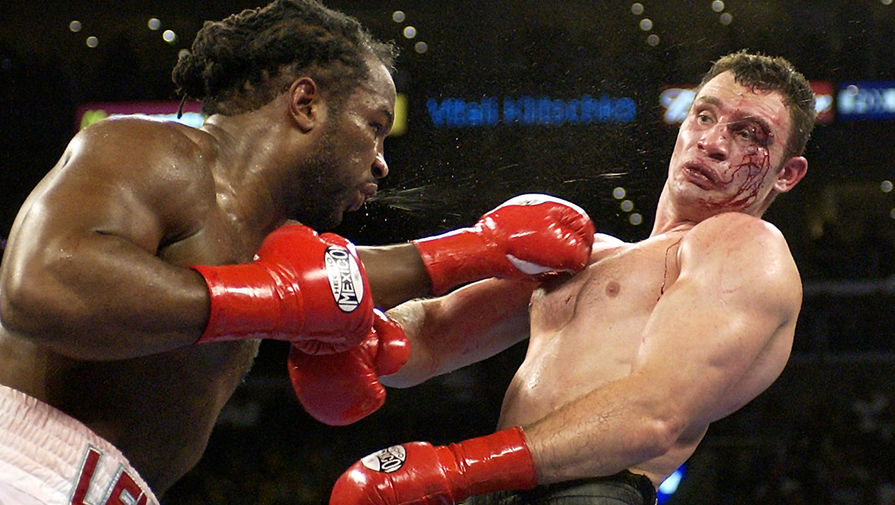1The biggest, most basic logical and psychological mistake that almost all people make every now and then is to judge a thing without examining it themselves. That mistake is the ground of the human misery.
2Nobody has a logical right to give an opinion on things he has not examined himself. If you do not have the possibility, the opportunity, the ability to examine it yourself, then you must refrain from giving an opinion of it. If this rule were observed, then an unbelievable amount of illusions, fictions, dogmas of all kinds would be quickly scotched, people would be liberated from more than 90 per cent of all the lies they have accepted with blind eyes.
3The present writer counts it as his true merit that he has himself examined everything of which he has tried to form a view, being grateful for that philosophical education which clarified the intellectual norm saying that you shall not accept anything without sufficient grounds. In that procedure not even law reports were sufficient. For as every judge knows, a court cannot establish the truth. It has to judge on circumstantial evidence and the testimony of witnesses. All too many wrong judgements are passed daily for making it possible to invoke judicial decisions. An esoterician never does.
4The holy spirit of truth condemns all who give opinions without examining the matter themselves. Nobody has any right to do so.
5Anyone who says “everybody knows that”, “all authorities agree on that score”, “science has established that fact long ago”, etc., in any case is no esoterician for such a one must not give opinions on the basis of what is said, what is thought, what is believed, what is stated, what all agree on, what public opinion knows, etc.
6The World-Teacher (Bodhisattva, later Buddha) Gautama inculcated in his disciples the importance, above all, of acquiring common sense and not accepting anything that is in direct conflict with that faculty. In our times, 45-self D.K. has elaborated on the Buddha’s admonition. He points out that there are three different attitudes in the conception of the uninitiated: to regard esoteric facts received as interesting and possible hypotheses pending confirmation; to accept them because you have faith in the person giving the information; to reject them as being fantastic, uncontrollable, and meaningless.
7Of these three standpoints he regards the first to be the only rational one, since it grants the seeker mental integrity with a readiness to accept what on critical examination seems possible and probable, at the same time protecting him from uncritical credulity, which has been the curse of mankind, and uncritical belief in authority, which is closely related to credulity. 8That system, which has demonstrated its tenability in all respects, is accepted and used until it is superseded by a still better one.
1.13 Never Accept Anything Without A Sufficient Ground!
1The mark of a truly “educated” person is that he is not ready at once to give his opinion on a matter but waits until he knows what it is about and has acquainted himself with the available facts. He has seen that there is so much beyond man’s power of judgement. He knows much and yet infinitesimally little. That insight results in true humility and makes it impossible for him to adopt that self-exaltation, which is so common, not least in the greatest authorities.
2In contrast, nothing is more typical of all people who have not been thoroughly trained in ordinary logical inference thinking than the tendency to give opinions offhand before they have studied the requisite facts or even know what the matter is about. People comment on most things of which they actually can know nothing, not even seeing that they need facts to judge things. They are quite content to assume something on purely imaginary grounds. That is why almost all their statements are wrong when they are to account for things that go beyond their individual experience of the present.
3When will they have learnt that most simple, most basic principle of rational thought: Never accept anything without a sufficient ground? Faith in authority is no sufficient ground. The views of public opinion, newspaper reports, other people’s statements are no sufficient grounds. It is typical of the dogmatist that he refuses to study the arguments of those who do not share his opinions. He knows that he is right and that all others are wrong. 4This appears idiotic to anyone who has studied this tendency occurring spontaneously in groups of all kinds (political, social, economic, theological, philosophical, scientific, etc.). The very idiocy is that you believe you know.
5Few people have learnt to distinguish what they understand and what they just believe they understand, have learnt to see what they can and what they cannot understand in a general life sense. That ability presupposes the refusal to accept anything you do not comprehend fully and thoroughly. If you had assimilated that attitude you would not have accepted the current views and opinions. Once you have adopted them it is not very easy to rid yourself of them.
6This irremediable tendency to believe you know, comprehend, and understand, to believe in vagaries and brainwaves, is also present in occultists, and that is the reason why most of what they say should be taken with a good share of skepticism. There is immensely much that remains to be known, immensely much that we do not know, immensely many facts we still need in order to make correct statements about anything at all whenever it comes to more than quoting verbatim what we have been given to know. Our individual choice of words is most often misleading in matters requiring exact formulation.
7It is part of general injudiciousness that people have been taught how to think, and then believe they have discovered by themselves how to think and are very intelligent and important in their own eyes. Most people, however, do not think for themselves but just repeat what they have grasped to some extent. Sometimes they quote an authority, but as for the greater part of the content of their consciousness they do not care for origins. They seem to have forgotten that they have taken it from home, from the school, from the daily press, etc. As literacy is spread more and more, those found on the emotional intermediary levels find it increasingly easier to draw their own conclusions. The greater ability to think, however, does not imply the ability to “think right”, in accord with reality and the actual things of life, as these people invariably believe. The failure to see this is the ground of that chaos of consciousness of which our time affords countless examples. All who are able to write think they have something to teach others, not seeing through their own illusoriness and fictitiousness. They do not know that knowledge of the content of the human worlds we receive only from the causal world, and knowledge of life in general we receive from the essential world. It is individuals from those worlds who communicate them, either as teachers in physical incarnation or as inspirers of minds receptive to these ideas. The disciple of the planetary hierarchy is taught the method for self-acquisition of ideas, an ability that is otherwise slowly learnt during many incarnations.
8People seem to have an inveterate tendency to put an individual on a certain level, to stick a label on him (that’s how he is), to judge other people according to their own templates. They do not see that this is unfeasible and testifies to either over-or underestimation, generally the latter, since a true assessment is hindered by the feeling of not being the one you want to be. 9Typical of the presumption of human life ignorance is the belief of the supernormal mind in its own power of judgement. This can be ascertained particularly in the so-called great philosophers (Kant, Hegel, etc.). Probably it will take some time yet before they have made the Sokratean realization of the fact that what man is able to know is like a drop in the ocean. We know too little (possess too few facts) to rightly judge superphysical realities.
1.14 Dogmatism
1A fifty year old man smiles at the view he held when fifteen, if he even remembers it. The people of the nineteenth century smiled at the views of the eighteenth. We, living in the twentieth century, smile at those who lived in the nineteenth. But how many people draw conclusions from the fact that all people in all ages and at all ages are as cocksure that their very views are the only true ones? How many people learn from this fact to be less cocksure of their views? When will we learn that our views are just temporary?
2Typical of the narrowness of dogmatic thought is its treatment of all pioneers. It is typical that Blavatsky is still shouted out as the biggest fraud of her times, just as she met with the same destiny in her preceding incarnations as Paracelsus and Cagliostro. They stopped at no infamy when trying to drag her down into the dirt.
3If Cagliostro had been such a notorious swindler, then Richelieu would not have invited him to the gala banquet he gave in honour of Gustavus III, King of Sweden, in Paris; perhaps the only true story about Cagliostro.
4It is typical that the same individual in his incarnations as Rosencreutz, Francis Bacon, and Saint Germain was regarded and is still regarded as a notorious cheat. You could go on with the enumeration of these martyrs if they were better known to history. So esotericians should cherish no illusions of gaining personal recognition. Rather they run the risk of being regarded as injudicious fantasts. Anyone who is before his times must suffer if he shows it. Still martyrdom is the pioneer’s lot. The freemasons have been smarter. They are respected for they have learnt to be silent so that their teachings have not been critized by the many injudicious authorities of public opinion with their pedantic pseudo-knowledge.
1.15 Belief in Authority
1The esoterician has no belief in authority. Quite the reverse, he is encouraged by all authorities of the planetary hierarchy not to accept anything he has not himself seen to be correct. We must all work with hypotheses, assumptions for the time being, possibilities also where we find no grounds for probability. This is so self-evident a thing that it need not even be discussed.
2It is of no importance whatsoever who said or who wrote something. Either it is right or it is wrong. It is up to everyone to decide for himself. In esoterics, there is no authority, not even a divine authority. You accept or reject on your own responsibility.
3Emotion must not have any say in matters pertaining to the world view. Emotion has a part in life view, and the history of the world is just one big example of its unreliability as a criterion of truth. It is high time that critical reason, however it be, were made the supreme authority. “Everybody is the master of his own wisdom” but then only for himself and never for others. We must develop into independent thinkers and stop being echoes, stop believing because others have believed and claimed they knew. 4Every book must defend its justification by its contents. An esoteric book may claim to be a link in the chain of research if it survives the criticism of common sense, contains something new and essential, accords with definitively accepted views. Any invoking of authority is ineffective.
5Nor is it of any importance whatsoever who first said something. The important question is whether it is correct. No esoterician claims priority. Nobody is first because whatever is claimed by right of priority exists in the causal world. 6Nowadays esoterics has been given such a form that anyone who is ripe for that knowledge does not need to confide in it blindly as an authority, as has been the case hitherto. The esoterician does not any longer accept loose statements but will ascertain for himself that facts have been put into their right contexts, be logically convinced that whatever is said squares with the facts. There must be no more accepting without comprehension and understanding. Esoterics must not be turned into a matter of belief. Whatever you do not understand you are wise to doubt or leave undecided.
7Perhaps it was not that strange that the disciples of the planetary hierarchy first appearing – Blavatsky, Besant, Leadbeater and others – gave rise to a cult of perfect teachers despite the latter’s protests, a thing that harmed the esoteric cause enormously. Even though the teachers make an overwhelming impression with their powers incomprehensible to us, yet the insight that a 43-self has 42 stages left to cosmic omniscience and omnipotence should have counteracted the dogma of absolute infallibility.
8In the planetary hierarchy, there is only one view concerning the knowledge of reality within the seven atomic worlds of the solar system. It does not follow from this, however, that there is any infallible or unitary opinion as to what measures taken by the planetary hierarchy can prove the most advantageous in every human case. The individuals making up our mankind are found at all the various evolutionary stages, and the law of freedom and the law of self-realization have inviolable validity. Therefore, assessing how mankind will react is for the planetary hierarchy a calculation of probability, and so different opinions about it are possible.





Оценили 0 человек
0 кармы